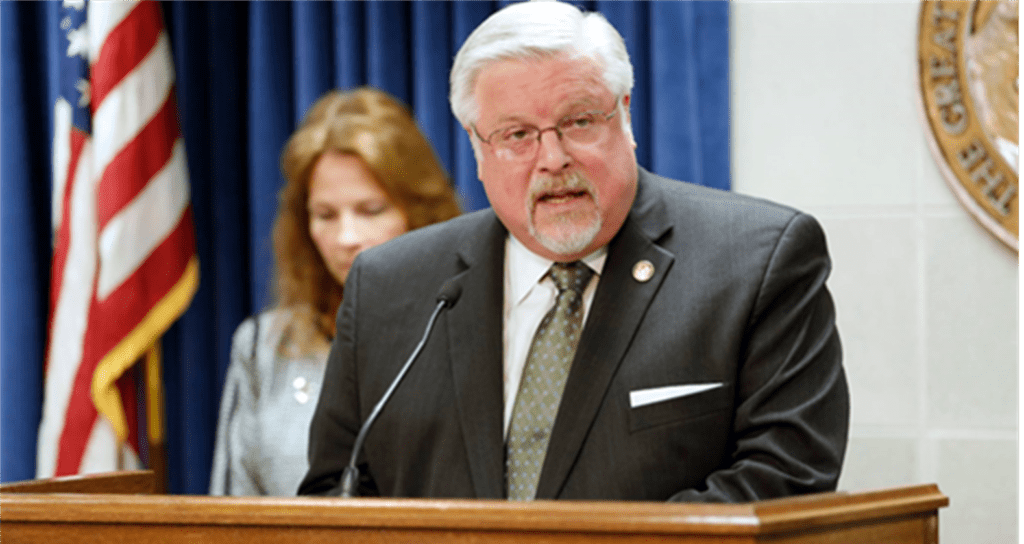
By L.A. Williams
Christian Action League
December 9, 2022
“Congress is considering the SAFE Banking Act, which would open the floodgates to the federal legalization of marijuana and harm public safety,” the Rev. Mark Creech wrote this week in The Winston-Salem Journal. In his op-ed piece, posted on the newspaper’s website Thursday, and in letters to their senate offices, the executive director of the Christian Action League called for Senators Richard Burr (R-N.C.) and Thom Tillis (R-N.C.) to oppose the legislation.
Introduced during Congress’ “lame duck” period, the measure is expected to be attached to a “must-pass” year-end bill such as the National Defense Authorization Act.
According to Axios, Senate Majority Leader Chuck Schumer (D-N.Y.), is pushing the measure, which would let cannabis companies access banking institutions and create grants for state expungement of past marijuana convictions. While supporters say it is needed to help marijuana dispensaries reduce their risks of being targeted by thieves, the true motivation for passing the bill is to legitimize the sale of a Schedule 1 drug and open the marijuana trade to huge investments from addiction-for-profit industries, such as Big Tobacco, Big Alcohol and Big Pharma.
“This trend will drive out mom-and-pop shops and further harm communities of color. It will also concentrate health-related harms among vulnerable populations that the industry expects may provide the most significant profits,” Creech says. “We know who wins when Big Tobacco, Big Alcohol, and the banks get together to cash in on the drug business, and it isn’t the public––and certainly not marginalized communities.”
The CAL is far from alone in its opposition to the SAFE Banking Act. The Family Research Council issued a statement calling out the effort to sidestep the Controlled Substances Act, which makes it illegal to handle controlled substances or the proceeds from their sale, and pointing out that the legislation would also undermine the Bank Secrecy Act and Anti-Money Laundering laws that help law enforcement ensure that businesses are not fronts for criminal activity.
“At a time when illicit drug use is wreaking havoc on families and children, the last thing we need is the federal government financially supporting an industry that would normalize drug use in American culture and make drugs more widely available,” the FRC concludes.
Senators have also heard from a coalition of medical professionals, addiction treatment providers, drug prevention organizations, law enforcement, communities of faith, and public policy advocacy organizations who signed onto a Nov. 22 letter expressing their concerns.
“The passage of this piece of legislation would allow institutional investors to greatly expand the marijuana industry and counter public health measures. The marijuana industry does not need more access to money, which would allow them to advertise, promote, and commercialize their super-strength THC products,” the letter said in part, also adding, “The SAFE Banking Act has no guardrails for public health and would only help the industry encourage more young people to try marijuana.”
Signers included the National Sheriffs’ Association, Drug Free America Foundation, National Drug & Alcohol Screening Association (NDASA), Rosenthal Center for Addiction Studies and Smart Approaches to Marijuana Action (SAM), among many others.
SAM has called the bill “a backdoor attempt at full recreational legalization in all states.”
“The growth of the marijuana industry has caused THC potency to skyrocket from 2 to 5 percent in the 1970s to 99 percent in many concentrates sold today,” SAM reports. “The significant mental health damage to youth caused by these products will only worsen with this legislation because the industry will use new investments to further increase potency and bring in new users.”
SAM points out that the idea that marijuana dispensaries are cash-only businesses without access to banking is a myth since hundreds of banks and credit unions across the country already provide them services. Furthermore, SAFE Banking will not make the businesses less of a target for crime since the lure for criminals is the lucrative marijuana products, not cash left in a register.
The organization also asks senators some important questions: If banks are allowed to accept illegal funds for the sale of a controlled substance like marijuana, how much longer before they are dealing in magic mushrooms, cocaine and heroin, especially in states like Oregon, which has decriminalized all drugs? And how will law enforcement have a chance against international drug cartels once they have this new and improved avenue for money laundering?
To see where the bill would take the U.S. lawmakers need look no further than Canada, where marijuana banking is legal and anonymous offshore firms with suspected links to organized crime have infiltrated the industry, SAM reports.
The Rev. Creech cited former directors of the White House Office of National Drug Control Policy and the Drug Enforcement Administration in his call for senators to block the SAFE Banking Act. This bipartisan group has issued a strong warning: “In short, the SAFE Banking Act could inadvertently allow cartels to bring into banks duffel bags of cash made from the sale of those illicit drugs that are killing tens of thousands of Americans every year.”
“There is nothing safe about the so-called SAFE Banking Act,” Creech wrote. “It must be stopped.”
Read his op-ed in The Winston-Salem Journal.
If you have difficulty accessing it on the WSJ website for some reason, try accessing it on the Christian Action League’s link.
Take Christian Action:
Contact Senators Tillis and Burr and urge them to work to stop The Safe Banking Act, which will provide tremendous momentum to the marijuana industry for making recreational marijuana legal throughout the United States.
Send Senator Tillis an email at this link:
https://www.tillis.senate.gov/email-me
You might consider following up your email by calling his office at this number:
Phone: (202) 224-6342
Send Senator Burr and email at this link:
https://www.burr.senate.gov/email-me
You might consider following up your email by calling his office at this number:
Phone: (202) 224-3154
